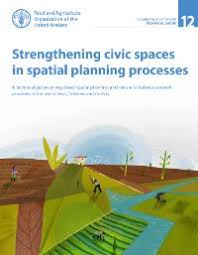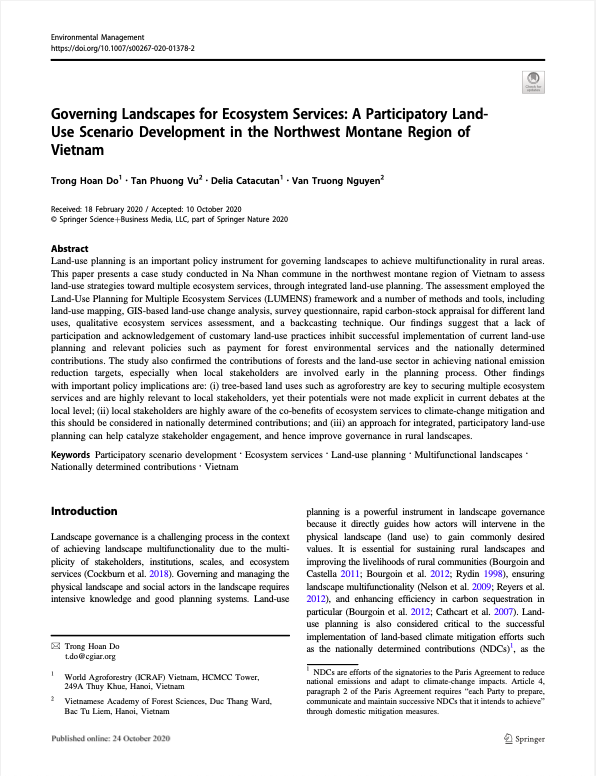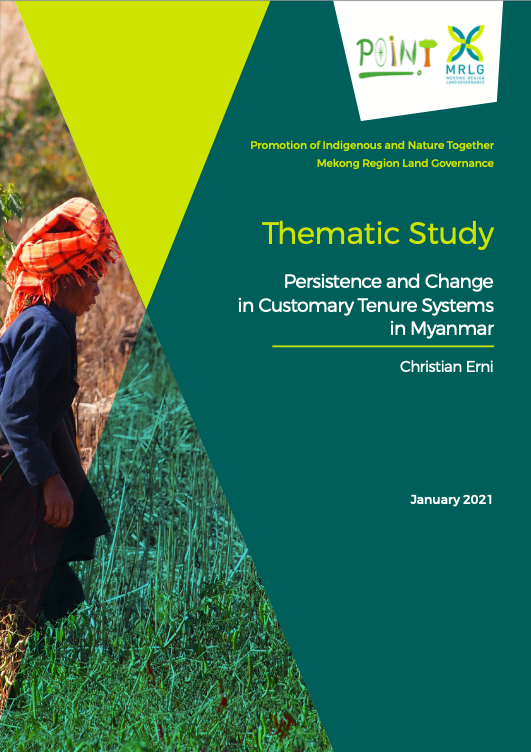Strengthening civic spaces in spatial planning processes
This technical guide provides strategies on how to strengthen, protect and promote legitimate tenure rights in spatial planning processes at the local, regional and national levels. It addresses state authorities involved in spatial planning processes, national governments and local authorities, and those operating on behalf of the state or within customary governance systems.






